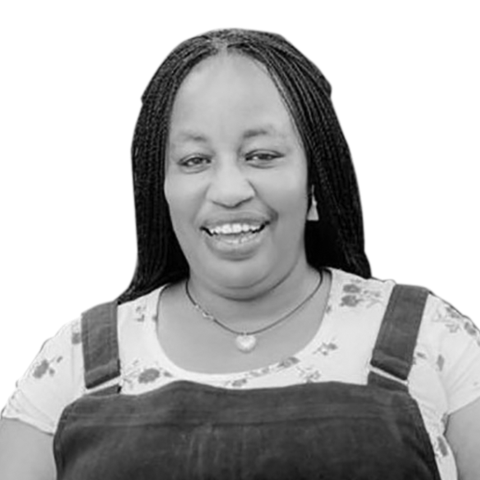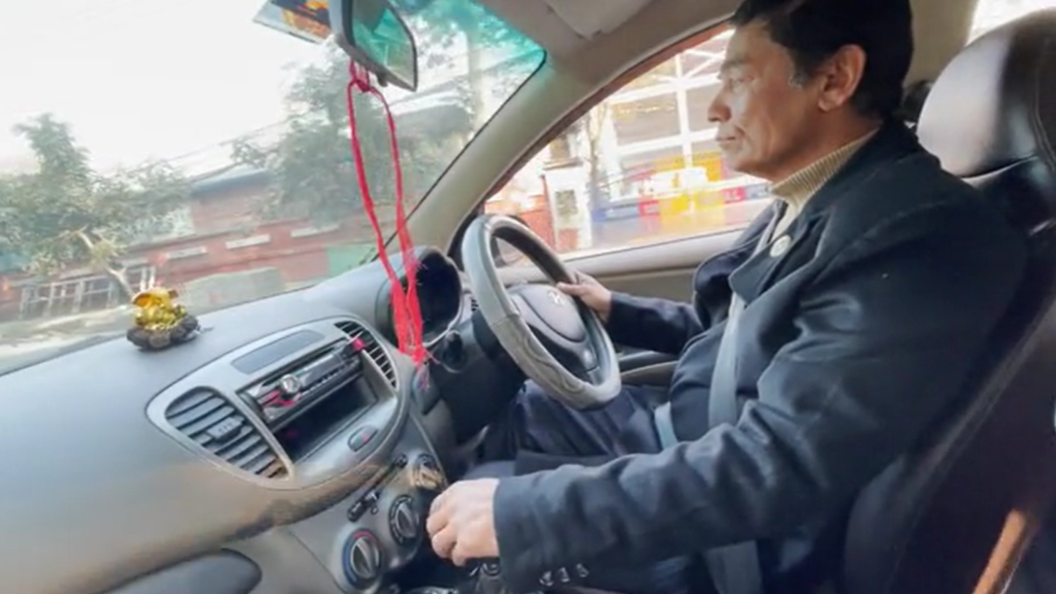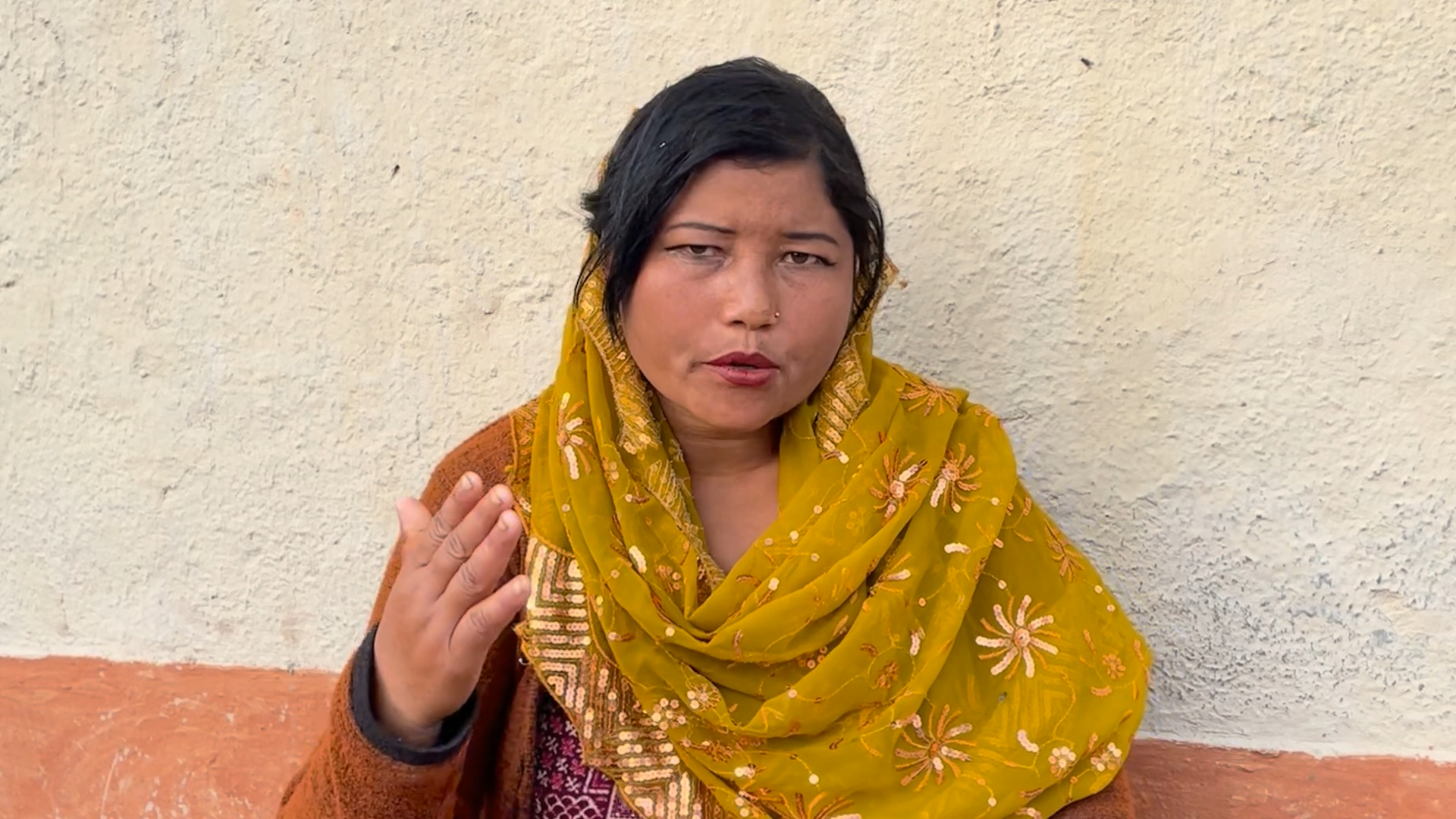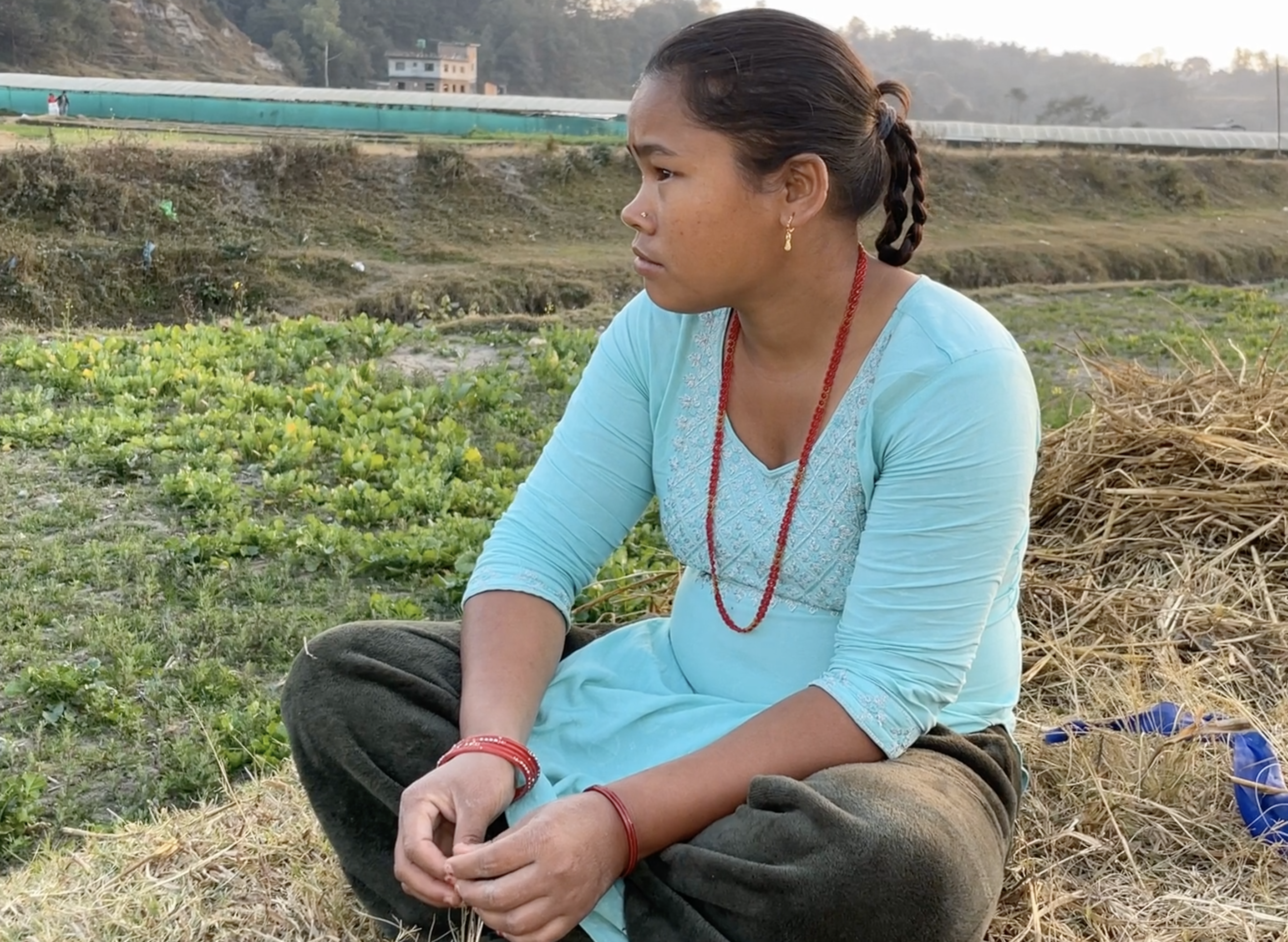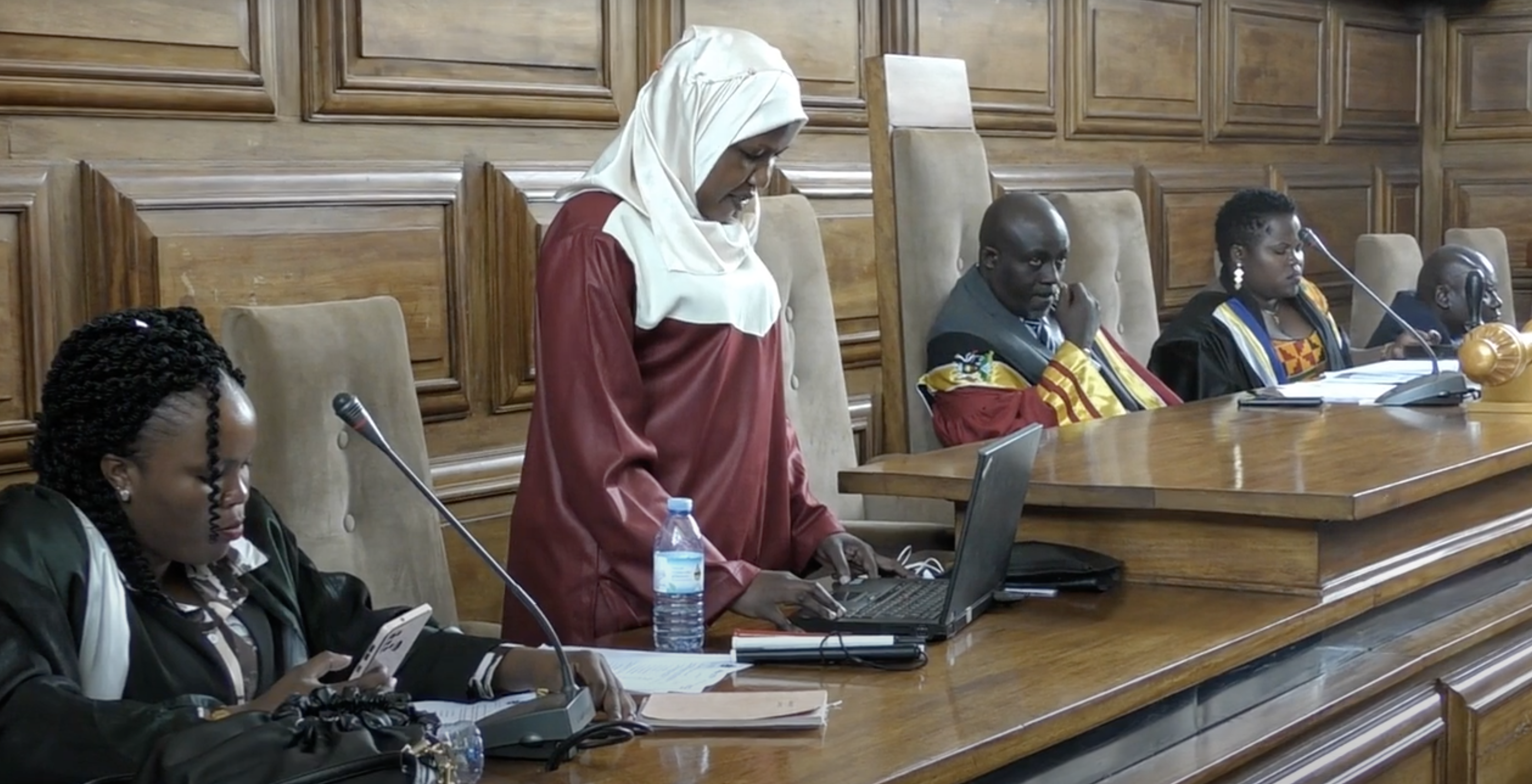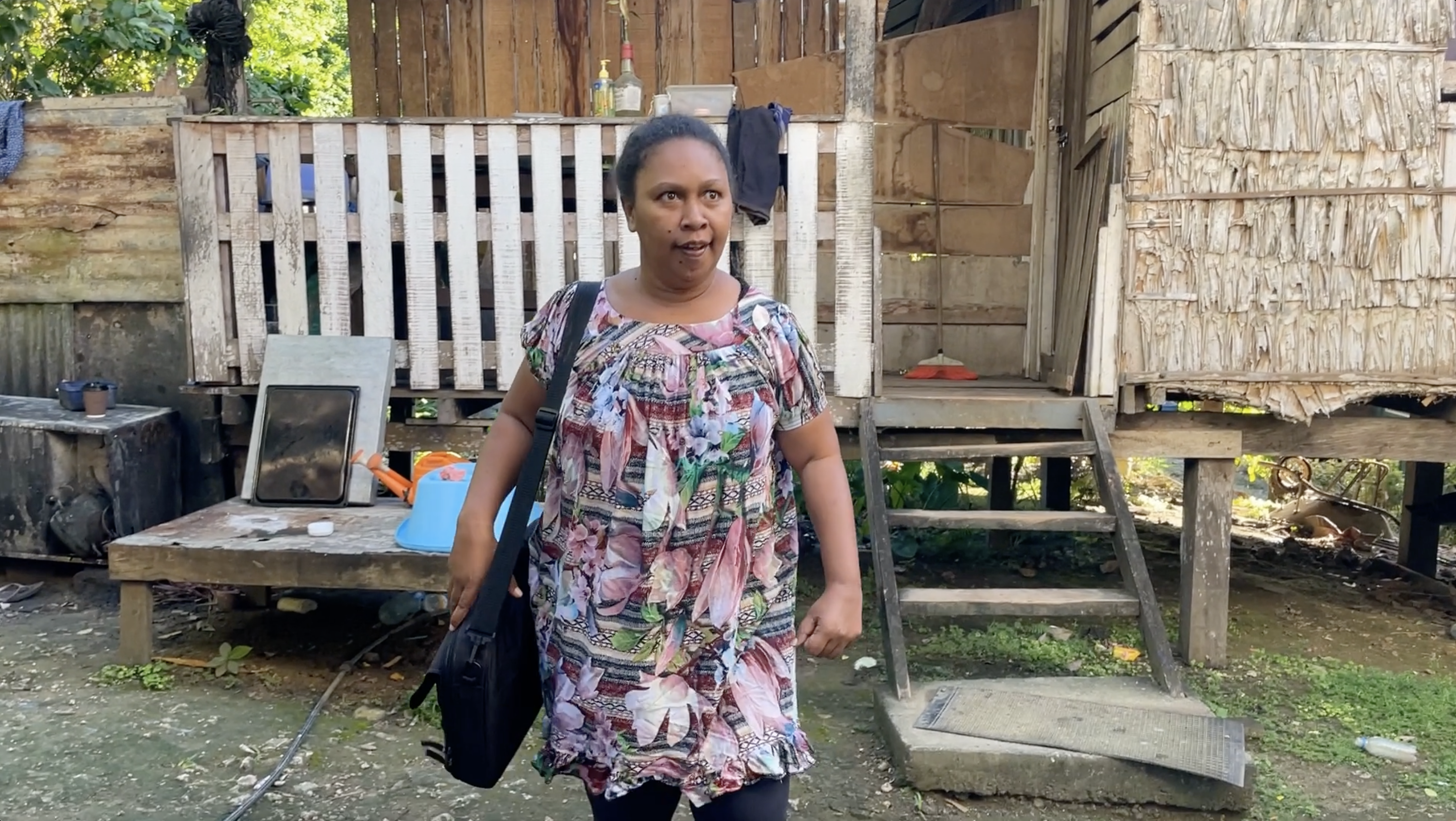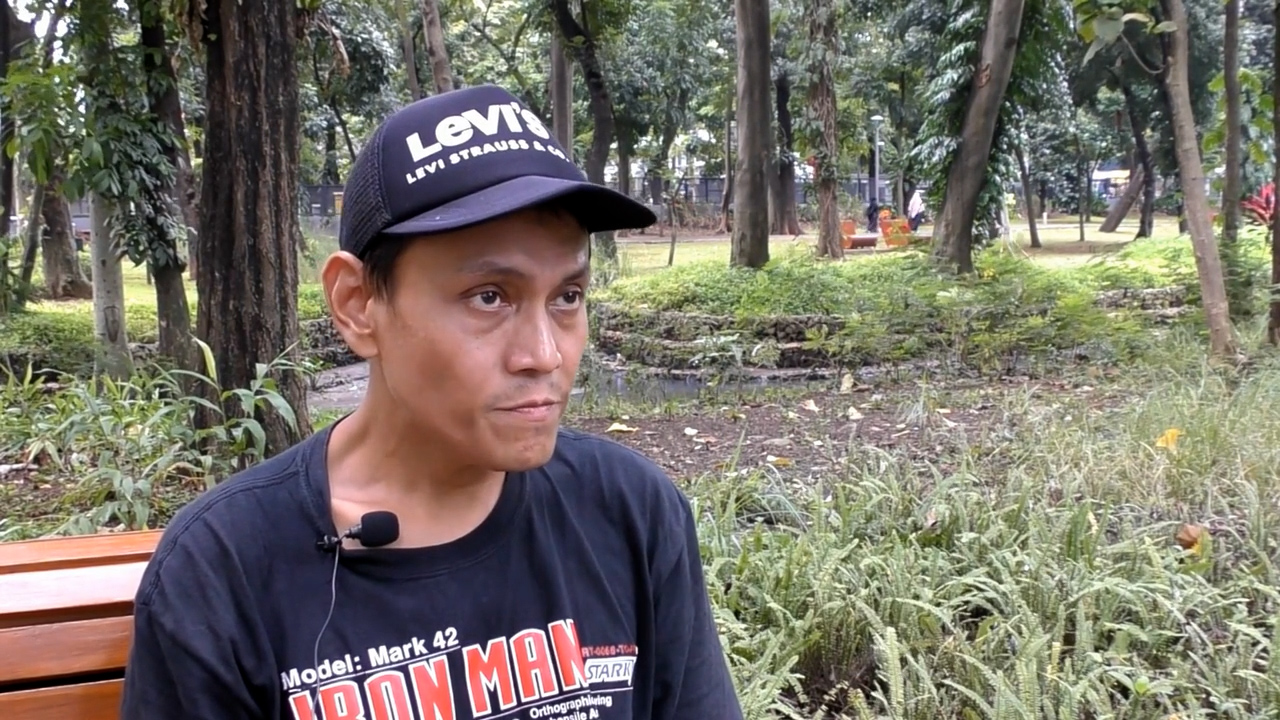Transcript for Finding the Light
Video starts with gentle guitar music and a photo of NOUSPR members standing in a circle outside. A Rwandan man wearing a mask appears to be talking with them. The people in the circle have bundles of supplies at their feet. The next photo is of NOUSPR members sitting in a room in white chairs, masked, and the third photo shows NOUSPR members sitting on the grass with more bundles of supplies in front of them.
The next shot is of a NOUSPR billboard. It says “NOUSPR-UBUMUNTO: National Organisation of Users and Survivors of Psychiatry in Rwanda” and includes contact information. It also shows the NOUSPR logo – a drawn face – and tagline: “seeking dignity.”
The video cuts to an interview with Mariza Munah, NOUSPR’s advocacy officer. She is sitting on a large, brownish beige couch and wearing a brown and orange dress. Her short, dark hair is pulled back in a scarf. “I believe that mental health issue in our country is one of the neglected disabilities,” she says. The video cuts to Mariza in the office. She is sitting behind a computer, with a NOUSPR poster behind her. “So I think direct advocacy can work here in our country,” she says. “If we really meet those people who can really bring change like the politicians, the authorities, the police, the Ministry of Health, all those organizations that can really bring change.”
The video cuts to Mariza walking down a dusty street. “With that, people with mental health issues can get help,” she says. The video cuts back to Mariza in the interview on the couch. “I have been working with NOUSPR for a long time now,” she says. Video shows a photo of NOUSPR members standing outside again, with bundles of supplies at their feet. Video cuts to a closeup shot of four NOUSPR members talking in a room. There are two men and two women, and two of them are pointing at something in the corner. Cut to a headline from an online news publication, Rwanda Focus (Kigali), that says “Rwanda: Organization Helps Mental Health Patients to be Productive.” The beginning of the article says, “The National Organization of Users and Survivors of Psychiatry (NOUSPR), which advocates for people with current or past psychosocial problems, has set up an initiative to group its members according to their health situation to form cooperatives so that they can earn a living. Seated in a room making the baskets, trays, mats, others on tailoring machines, a group of people who have experienced or are experiencing mental health problems are being supervised by chairwoman Shemsha Murekatete.”
Video returns to Mariza on the couch. “In our culture, we don’t believe that there is such a thing like depression, like anxiety,” she says. Video cuts to three NOUSPR members in white coats (like the kind doctors would wear) with the NOUSPR logo. “They believe that you just have to face whatever comes your way and still be strong and still be normal,” says Mariza. Video cuts to a photo of dozens of NOUSPR members sitting in front of a NOUSPR banner that says, “Focus on Suicide Prevention.”
“Now that people are realizing that this is an issue, it’s a very big problem,” Mariza says, “especially with what our country went through, the genocide and the war.” Video cuts to an old photo from Rwanda. Military vehicles drive down a dusty road while families with bundles on their backs walk beside them. Cut to a picture of a woman in a blue shirt. She has braids and is wearing glasses. She is seated and looking at a wall of pictures of people who died during the Rwandan genocide. Video cuts to a screenshot of an academic study with the headline “Rwanda – lasting imprints of genocide: trauma, mental health and psychosocial conditions in survivors, former prisoners, and their children.” The academic study’s background says, “The 1994 genocide of the Tutsi in Rwanda left about one million people dead in a period of only three months. The present study aimed to examine the level of trauma exposure, psychopathology, and risk factors for posttraumatic disorder (PTSD) in survivors and former prisoners accused of participation in the genocide as well as their respective descendants.”
“I think it’s going to be very, very difficult to make people who have been understanding this thing in the wrong way for a very long period of time.” Video cuts to Mariza walking down a street. “To make them now see how things really are,” says Mariza. Video cuts to a photo of a purple banner that says, “The light will eventually overcome the darkness of genocide.”
“I think it’s not easy, but it’s possible that people can change their mindset,” says Mariza.
Transition to a title card with words highlighted in yellow on a black screen that says, “Copyright – @2021 NOUSPR. All rights reserved.”
